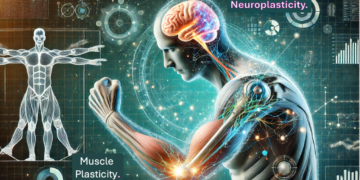Aging is a natural part of life, but it can often come with its own set of challenges. As we grow older, our bodies and minds undergo changes that require us to adapt. However, maintaining good health in old age is not just about managing these changes—it’s about thriving during this stage of life.
Many people worry about the impact of aging on their health. Common concerns include chronic illnesses, mobility issues, and cognitive decline. But it doesn’t have to be that way! With proactive measures and lifestyle choices, you can enhance your wellbeing as you age.
This journey toward better health starts with understanding what it means to grow older gracefully. Let’s explore some effective strategies for keeping both body and mind healthy while enjoying all that later life has to offer.
Common Health Concerns in Old Age
As we age, our bodies undergo various changes that can lead to common health concerns. Chronic conditions like arthritis and diabetes often become more prevalent. These issues can significantly impact mobility and daily life.
Cognitive decline is another concern for many seniors. Conditions such as dementia or Alzheimer’s disease may disrupt memory and communication skills, making it challenging to maintain independence.
Heart health also deserves attention. Cardiovascular diseases are a leading cause of mortality in older adults. Regular check-ups become essential for monitoring blood pressure and cholesterol levels.
Additionally, vision and hearing impairments can affect quality of life. Routine screenings help catch these issues early on, allowing for timely interventions.
Mental health should not be overlooked. Feelings of loneliness or depression can arise from isolation or loss of loved ones, impacting overall well-being significantly.
Tips for Maintaining Good Physical Health
Staying active is crucial for maintaining good health in old age. Aim for at least 150 minutes of moderate exercise each week. This could be brisk walking, swimming, or even dancing—whatever keeps you moving and enjoying life.
Strength training should not be overlooked either. Simple weight exercises two to three times a week can enhance muscle mass and improve bone density.
Flexibility matters as well. Incorporate stretching or yoga into your routine to maintain mobility and prevent injuries.
Don’t forget about regular check-ups with your healthcare provider. Routine screenings can catch potential issues early on.
Hydration is essential too; drink plenty of water throughout the day to keep your body functioning optimally.
Listen to your body. Rest when needed but strive for consistency in staying active and engaged in physical activities that bring you joy.
Mental and Emotional Well-being in Old Age
Mental and emotional well-being plays a vital role in maintaining good health in old age. As we age, it’s essential to nurture our minds as much as our bodies. Engaging activities like reading, puzzles, or learning new skills can help keep the brain sharp.
Social interactions are equally important. Regular chats with family and friends provide emotional support and combat feelings of loneliness. Joining clubs or community groups can create a sense of belonging.
Mindfulness practices such as meditation or yoga also contribute significantly to mental health. These activities promote relaxation and reduce stress levels.
Don’t hesitate to seek professional help if needed. Therapists and counselors can offer guidance tailored to your unique life experiences. Embracing these strategies fosters resilience against life’s challenges as you navigate through your golden years, ensuring a fulfilling later stage of life that feels rich and meaningful.
Social Connections and Community Involvement for Seniors
Social connections play a vital role in maintaining good health in old age. Engaging with friends and family can significantly enhance one’s emotional well-being. Regular interactions help combat feelings of loneliness, which can lead to depression.
Community involvement is equally important. Joining local clubs or volunteering provides a sense of purpose. It fosters new friendships and keeps seniors mentally stimulated.
Participating in group activities, such as yoga classes or book clubs, encourages physical movement too. These gatherings often create supportive networks where members motivate each other to stay active.
Technology has also opened doors for social interaction. Video calls and online communities allow seniors to connect with loved ones near and far.
Investing time in building relationships improves quality of life tremendously. By staying socially engaged, older adults not only enrich their lives but also contribute positively to their community.
Importance of Proper Nutrition and Exercise
Proper nutrition plays a crucial role in maintaining good health in old age. As our bodies change, they require different nutrients to function optimally. A balanced diet rich in vitamins and minerals can help boost immunity and prevent chronic diseases.
Incorporating whole foods like fruits, vegetables, lean proteins, and whole grains into daily meals is vital. These choices provide essential energy while keeping weight in check.
Exercise is equally important for seniors. Regular physical activity enhances mobility, strengthens bones, and improves cardiovascular health. It doesn’t have to be intense—simple activities like walking or stretching can make a significant difference.
Engaging both the mind and body through exercise not only promotes physical well-being but also contributes positively to mental health. This holistic approach ensures that you maintain vitality as you age gracefully.
Financial Planning for a Healthy Retirement
Effective financial planning is crucial for a healthy retirement. It ensures you can access the resources needed to maintain your lifestyle and well-being as you age.
Begin by assessing your current finances. Understand your income sources, expenses, and any debts that need managing. This clarity will guide your future decisions.
Consider setting up a budget tailored specifically for retirement living. Prioritize essential expenses like healthcare, housing, and nutrition while allocating funds for leisure activities that enrich life.
Don’t underestimate the value of investing in health insurance or long-term care plans. These arrangements can save you from unexpected medical costs down the line.
Consult with a financial advisor who specializes in retirement planning. Their expertise can help optimize savings strategies and ensure you’re on track to meet your long-term goals without compromising health needs later on.
Conclusion: Aging Gracefully and Proactively Taking Care of Your Health
Aging is a natural part of life, but how we approach it can make all the difference. By being proactive about health, older adults can enhance their quality of life significantly. Making small changes now can lead to profound benefits in the future.
Embracing good physical health through regular check-ups and staying active is vital. It helps prevent many common ailments associated with aging. Mental and emotional well-being are equally important; engaging in activities that stimulate your mind and foster joy can keep spirits high.
Social connections shouldn’t be overlooked either. Building relationships within your community enhances feelings of belonging and support, which are essential as we age.
Nutrition plays a crucial role too—fueling our bodies with balanced meals aids not only physical health but mental clarity as well. And let’s not forget financial planning; securing your finances allows for peace of mind during retirement years.
By integrating these practices into daily routines, you set the stage for vibrant aging filled with purpose and vitality. Embrace this journey with an open heart, knowing that maintaining good health in old age is both achievable and rewarding.
Introduction to Aging and Health
Aging is a natural part of life, but it can often come with its own set of challenges. As we grow older, our bodies and minds undergo changes that require us to adapt. However, maintaining good health in old age is not just about managing these changes—it’s about thriving during this stage of life.
Many people worry about the impact of aging on their health. Common concerns include chronic illnesses, mobility issues, and cognitive decline. But it doesn’t have to be that way! With proactive measures and lifestyle choices, you can enhance your wellbeing as you age.
This journey toward better health starts with understanding what it means to grow older gracefully. Let’s explore some effective strategies for keeping both body and mind healthy while enjoying all that later life has to offer.
Common Health Concerns in Old Age
As we age, our bodies undergo various changes that can lead to common health concerns. Chronic conditions like arthritis and diabetes often become more prevalent. These issues can significantly impact mobility and daily life.
Cognitive decline is another concern for many seniors. Conditions such as dementia or Alzheimer’s disease may disrupt memory and communication skills, making it challenging to maintain independence.
Heart health also deserves attention. Cardiovascular diseases are a leading cause of mortality in older adults. Regular check-ups become essential for monitoring blood pressure and cholesterol levels.
Additionally, vision and hearing impairments can affect quality of life. Routine screenings help catch these issues early on, allowing for timely interventions.
Mental health should not be overlooked. Feelings of loneliness or depression can arise from isolation or loss of loved ones, impacting overall well-being significantly.
Tips for Maintaining Good Physical Health
Staying active is crucial for maintaining good health in old age. Aim for at least 150 minutes of moderate exercise each week. This could be brisk walking, swimming, or even dancing—whatever keeps you moving and enjoying life.
Strength training should not be overlooked either. Simple weight exercises two to three times a week can enhance muscle mass and improve bone density.
Flexibility matters as well. Incorporate stretching or yoga into your routine to maintain mobility and prevent injuries.
Don’t forget about regular check-ups with your healthcare provider. Routine screenings can catch potential issues early on.
Hydration is essential too; drink plenty of water throughout the day to keep your body functioning optimally.
Listen to your body. Rest when needed but strive for consistency in staying active and engaged in physical activities that bring you joy.
Mental and Emotional Well-being in Old Age
Mental and emotional well-being plays a vital role in maintaining good health in old age. As we age, it’s essential to nurture our minds as much as our bodies. Engaging activities like reading, puzzles, or learning new skills can help keep the brain sharp.
Social interactions are equally important. Regular chats with family and friends provide emotional support and combat feelings of loneliness. Joining clubs or community groups can create a sense of belonging.
Mindfulness practices such as meditation or yoga also contribute significantly to mental health. These activities promote relaxation and reduce stress levels.
Don’t hesitate to seek professional help if needed. Therapists and counselors can offer guidance tailored to your unique life experiences. Embracing these strategies fosters resilience against life’s challenges as you navigate through your golden years, ensuring a fulfilling later stage of life that feels rich and meaningful.
Social Connections and Community Involvement for Seniors
Social connections play a vital role in maintaining good health in old age. Engaging with friends and family can significantly enhance one’s emotional well-being. Regular interactions help combat feelings of loneliness, which can lead to depression.
Community involvement is equally important. Joining local clubs or volunteering provides a sense of purpose. It fosters new friendships and keeps seniors mentally stimulated.
Participating in group activities, such as yoga classes or book clubs, encourages physical movement too. These gatherings often create supportive networks where members motivate each other to stay active.
Technology has also opened doors for social interaction. Video calls and online communities allow seniors to connect with loved ones near and far.
Investing time in building relationships improves quality of life tremendously. By staying socially engaged, older adults not only enrich their lives but also contribute positively to their community.
Importance of Proper Nutrition and Exercise
Proper nutrition plays a crucial role in maintaining good health in old age. As our bodies change, they require different nutrients to function optimally. A balanced diet rich in vitamins and minerals can help boost immunity and prevent chronic diseases.
Incorporating whole foods like fruits, vegetables, lean proteins, and whole grains into daily meals is vital. These choices provide essential energy while keeping weight in check.
Exercise is equally important for seniors. Regular physical activity enhances mobility, strengthens bones, and improves cardiovascular health. It doesn’t have to be intense—simple activities like walking or stretching can make a significant difference.
Engaging both the mind and body through exercise not only promotes physical well-being but also contributes positively to mental health. This holistic approach ensures that you maintain vitality as you age gracefully.
Financial Planning for a Healthy Retirement
Effective financial planning is crucial for a healthy retirement. It ensures you can access the resources needed to maintain your lifestyle and well-being as you age.
Begin by assessing your current finances. Understand your income sources, expenses, and any debts that need managing. This clarity will guide your future decisions.
Consider setting up a budget tailored specifically for retirement living. Prioritize essential expenses like healthcare, housing, and nutrition while allocating funds for leisure activities that enrich life.
Don’t underestimate the value of investing in health insurance or long-term care plans. These arrangements can save you from unexpected medical costs down the line.
Consult with a financial advisor who specializes in retirement planning. Their expertise can help optimize savings strategies and ensure you’re on track to meet your long-term goals without compromising health needs later on.
Conclusion: Aging Gracefully and Proactively Taking Care of Your Health
Aging is a natural part of life, but how we approach it can make all the difference. By being proactive about health, older adults can enhance their quality of life significantly. Making small changes now can lead to profound benefits in the future.
Embracing good physical health through regular check-ups and staying active is vital. It helps prevent many common ailments associated with aging. Mental and emotional well-being are equally important; engaging in activities that stimulate your mind and foster joy can keep spirits high.
Social connections shouldn’t be overlooked either. Building relationships within your community enhances feelings of belonging and support, which are essential as we age.
Nutrition plays a crucial role too—fueling our bodies with balanced meals aids not only physical health but mental clarity as well. And let’s not forget financial planning; securing your finances allows for peace of mind during retirement years.
By integrating these practices into daily routines, you set the stage for vibrant aging filled with purpose and vitality. Embrace this journey with an open heart, knowing that maintaining good health in old age is both achievable and rewarding.





































